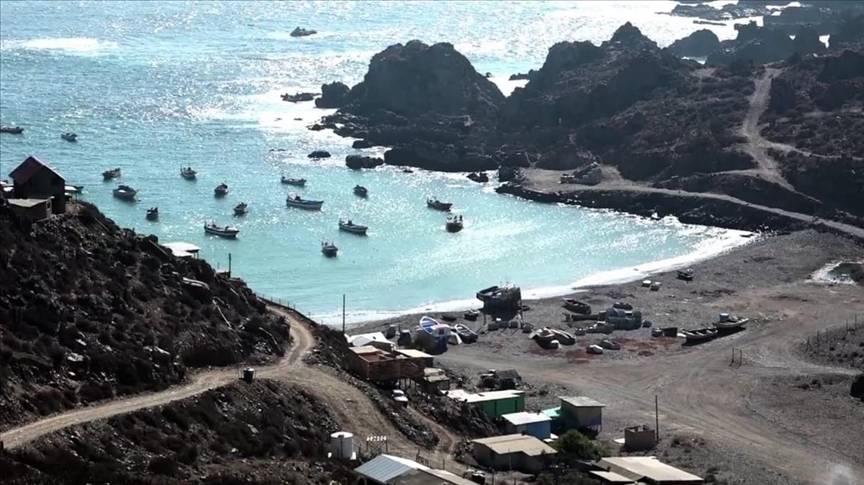This is how the revolutionary Internet Starlink will work in Chile

Written by: Andrea Aguilar Cordoba
The long and complex geography of Chile will serve as a pilot in Latin America for the constellation of satellites designed to provide high-speed broadband Internet in parts of the world previously inaccessible with this technology.
The Starlink network will test its connectivity in schools in the cities of Caleta Sierra, located in the northern region of Coquimbo, and in Sotomo, in the south of the country, where the initiative is expected to help bridge the digital divide and allow rural residents to access online lessons, telemedicine services and trade e.
“Our geography sometimes makes the deployment of traditional broadband networks complicated. For this reason, we are proud that Starlink has chosen Chile as a leading country in Latin America to start the deployment of a satellite Internet project, providing capacity and high-speed connectivity to two sites in the country”, stated the Minister Transportation and Telecommunications, Gloria Hut.
Starlink’s arrival in the country came after the Department of Transportation and Communications with billionaire Elon Musk’s company explored the technical possibility to conduct pilot tests, of a social nature, in isolated rural communities or those with digital connectivity issues and handed over a pilot permit to the company for non-commercial use of the service.
Through this process, access to better connectivity for rural or geographically isolated sectors is democratized, and integrated. This has a significant impact on the ability to enable different areas of productivity and to connect thousands of citizens who no longer need cables to send and receive information, a major advance in the process of digital advancement that our country is witnessing,” according to the Chilean Minister of Economy, Lucas Palacios.
Outlook in remote areas
Caleta Sierra is located 400 kilometers from Santiago, but its small geography means that it goes practically unnoticed on the maps and that, to get there, you have to pass through the land without any signs until you begin to see the colorful houses in which 170 people live and there is a school It has only eight students that the Internet will access for the first time.
“They will install the satellite Internet that will serve to communicate in this school, which is very important for us, and thanks to this network, our children will have a technical component to develop their activities and also says Claudio Renteria, mayor of Oval, the municipality that belongs to To this remote area of Anadolu Agency:
For Renteria, the arrival of this digital connection will allow a network of artisanal fishermen who are transforming the economy of this city to develop and their children can get a better education. This, at a time when the pandemic continues to widen inequalities in regions with less resources.
See also: SpaceX launches 60 satellites to provide broader Internet services
We have supported our students’ online efforts to have a relatively good time during this pandemic. But we encountered the problem of communication in some remote towns such as Caleta Sierra, where the school provides the best education that can be offered to the children of fishermen,” says the mayor.
During the first phase, the Starlink project promises a download capacity of 50-150 MB / s, with a short data transmission time that can range from 20-40 ms, which opens up a sufficient width for activities related to education, remote work and entertainment.
Benefits of new technology التكنولوجيا
The arrival of this SpaceX project in rural Chile marks a milestone in Musk’s goal to put into orbit a constellation of satellites capable of delivering high-speed internet to the world’s most inhospitable corners to connect to land vehicles, boats, planes and remote locations where providing communication is challenging because Terrestrial infrastructure limits.
“Starlink is designed for remote communities like Caleta Sierra and Sotomó. High-speed connectivity can have a transformative impact on these communities, and we look forward to supporting these pilot programs, starting with local schools,” said Gwen Shotwell, SpaceX President and COO.
To establish connectivity in these Chilean cities, Starlink has delivered sets of satellites that will allow free internet services for a year and then the municipalities will bear the cost, under an agreement under which, in addition to the two cities, the project is started, progress is already being made in adding new areas to this service , which plans to cover the entire national territory in the future.
“When we talk about the post-pandemic future, we cannot imagine it without comprehensive connectivity that allows productive sectors and citizens to develop wherever they are,” says Chile’s undersecretary for the economy, Julio Bertos.
For experts like José Miguel Piquer, a computer doctor from the University of Chile, Starlink offers the kind of technology that could be truly revolutionary in a country whose large industries operate in remote areas and where Internet access is very expensive.
“This is a technology that Chile can do very well, given the terrain of the hills and mountains in which mining companies, forestry companies and salmon companies operate on the ground where connectivity is very poor, non-existent or expensive to access,” he told Anadolu Agency. The fourth goes through the hills very badly.”
Becker concludes that the pilot that SpaceX will install in Chile in the coming months poses a challenge to search for regions far from Ecuador, where internet networks work best, to begin providing greater connectivity to the planet’s poles where it costs. More than the arrival of current technology.
Mexico will be the second country in Latin America to be accessed online via satellite Starlink, a technology that already works in the United States, Canada and the United Kingdom, and has a beta version in Spain. In addition, Space X has registered the brand to operate in countries in Europe, Oceania and South Africa.
According to billionaire Elon Musk, its 1,500 satellites, which already have 70,000 users, will allow global coverage in August, with the exception of the two poles, which will be available to all countries that authorize their operation.
Anadolu Agency website contains only part of the news stories presented to subscribers on the AA News Broadcasting System (HAS), and in summary.

“Pop culture advocate. Troublemaker. Friendly student. Proud problem solver.”






:quality(70)/cloudfront-us-east-1.images.arcpublishing.com/metroworldnews/KAMPU362RJDWBEEJAHCQQIMWEE.jpg)


